Gavin Stephens: ‘The police have lost focus of things that affect people’s day-to-day lives’
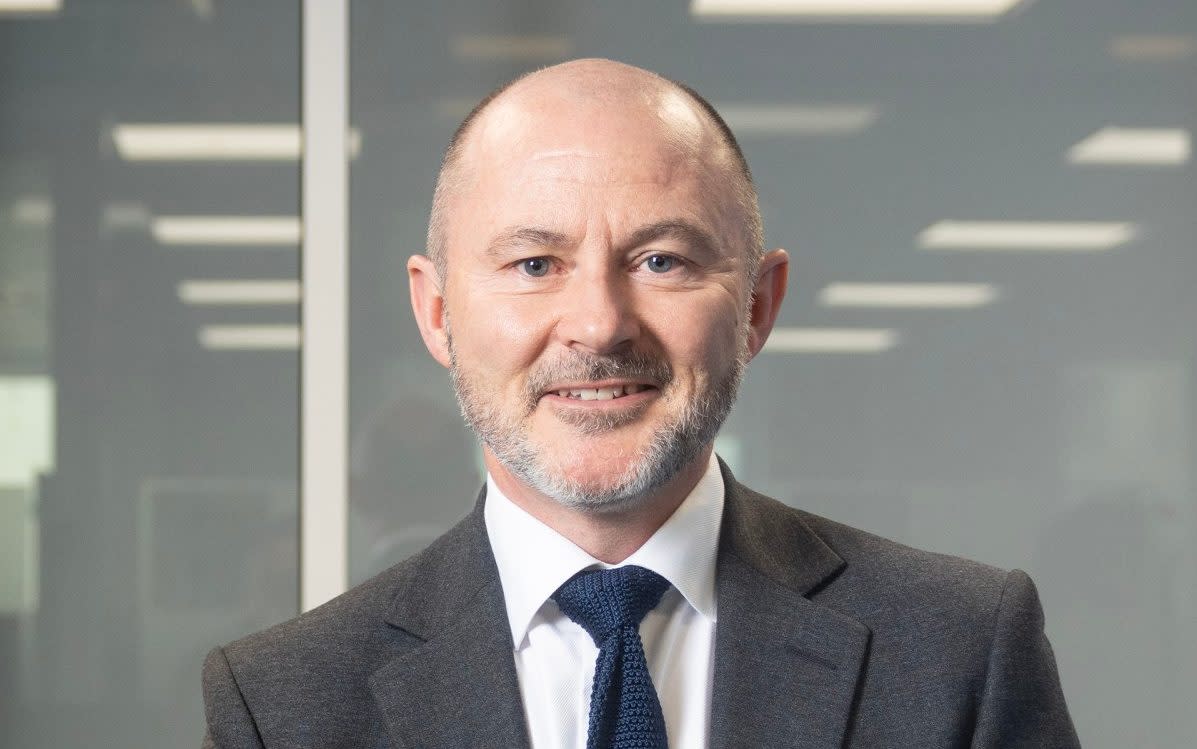
- Oops!Something went wrong.Please try again later.
- Oops!Something went wrong.Please try again later.
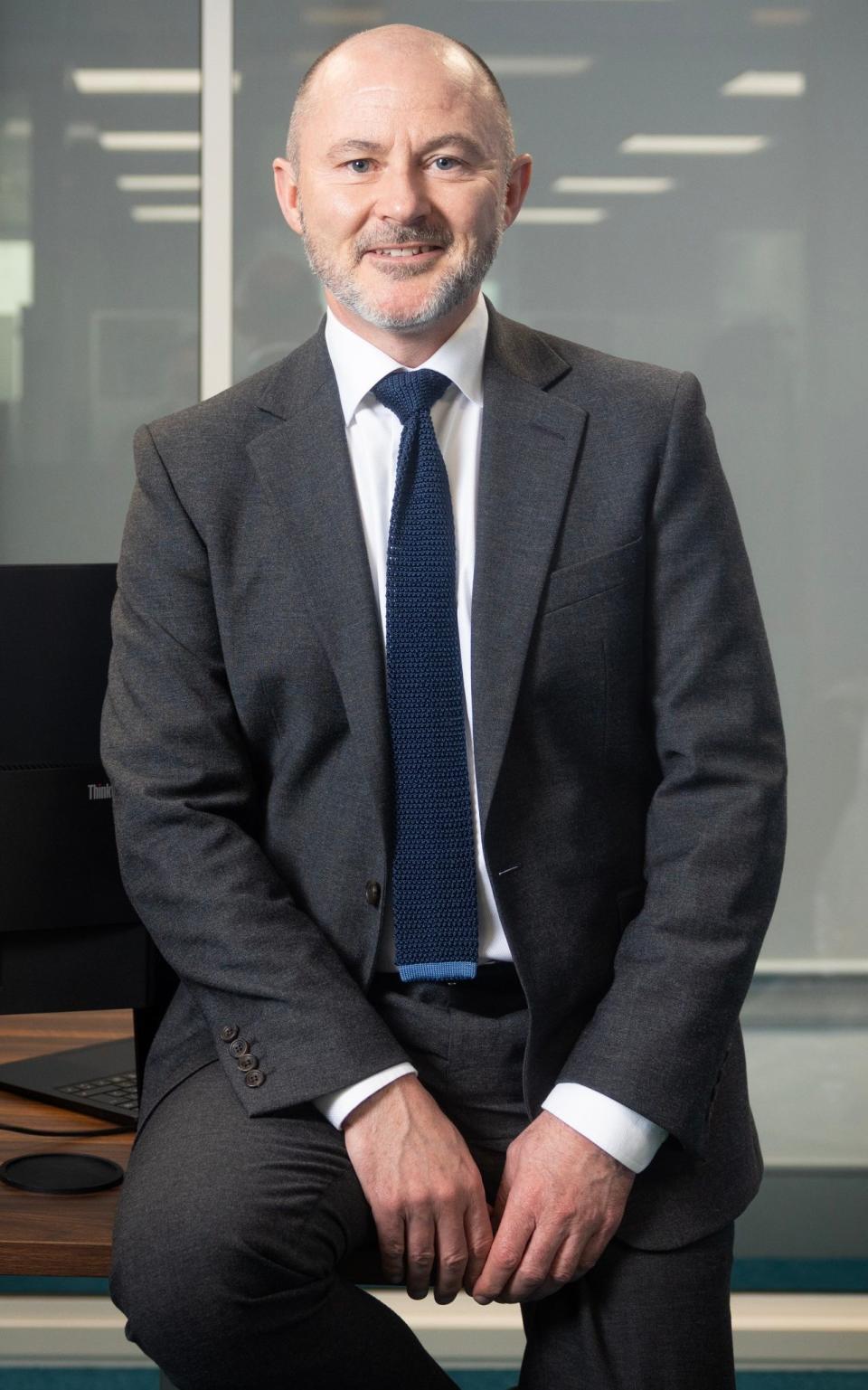
In many ways, Gavin Stephens is an old-fashioned police officer. Now chair of the National Police Chiefs’ Council (NPCC), he is at the forefront of discussions with the Government about the future of policing.
For him, that means serious investment in facial recognition and artificial intelligence, as well as an army of digital forensics experts, data scientists and programmers capable of tackling 21st century crime.
But his core passion remains in neighbourhood policing, which he calls the “bread and butter” of crime-fighting and has been the focus of much of his three-decade career. Stephens, who was the chief constable of Surrey Police until he took up his current role in April, believes the breakdown of the neighbourhood model during years of austerity and changing national priorities is one of the factors driving current public dissatisfaction with the police.
“It’s my genuine belief that’s the bedrock of what we do,” he says. “Local relationships will always be super important for everything, from anti-social behaviour all the way through to countering terrorism. Everything happens in a neighbourhood somewhere.”
Stephens believes police leaders across the UK should be working constantly to “understand the issues that most matter to local people” to maintain their trust and confidence, but says that this has gone astray. He admits that British police had “lost some of the focus on burglary, shoplifting, some of the things that affect people’s day-to-day lives” until public and political pressure sparked a recent change of course.
“I think there’s a welcome renewed focus on getting some of those basics right and doing it well,” he says. “I always take issue where people call it low-level offending – it is not. It’s the stuff that affects people’s lives, and that is a big component to whether people feel like their police service is there for them or not.”
But he argues that officers had only been trying to keep up with “society’s shifting expectations” by dedicating more resources to domestic abuse, sexual offences, child abuse and other “behind closed doors” crimes that were neglected in the past.
“It’s right that policing has adjusted and responded to those expectations, but in practical terms, the shift of balance and resources has completely changed,” he says. “When I joined policing, the CID [criminal investigation department] was the big office, and you might have a handful of colleagues working in public protection or child abuse. Now that is dramatically different.”
Stephens is concerned about more change on the horizon, warning that “very stretched” forces across the UK are about to start a period of severe cuts because their “budgets are insufficient”.
Calculations by the NPCC suggest there is a “£3 billion hole” over the next four years, because of a combination of high demand on forces, the rising cost of technology, rocketing wage bills and expensive borrowing. And he warns that forces will not be able to “provide the services that we know our communities need”, and that the current funding model is “unsustainable”.
“If you were to walk into any force at the moment, there’ll be conversations going on about where they’re going to have to reduce headcount, where investment needs to be taken out. They are really difficult conversations, especially after the previous round of austerity.”
He is calling on the Government to end “cycles of boom and bust” that have for years seen periods of pinched budgets followed by massive investment in specific areas. “It’s not good for communities for services to be built up, and for us to make progress, and then for it to be taken away,” he says. “It expends an awful lot of energy and resources to go through those programmes of rebuilding.”
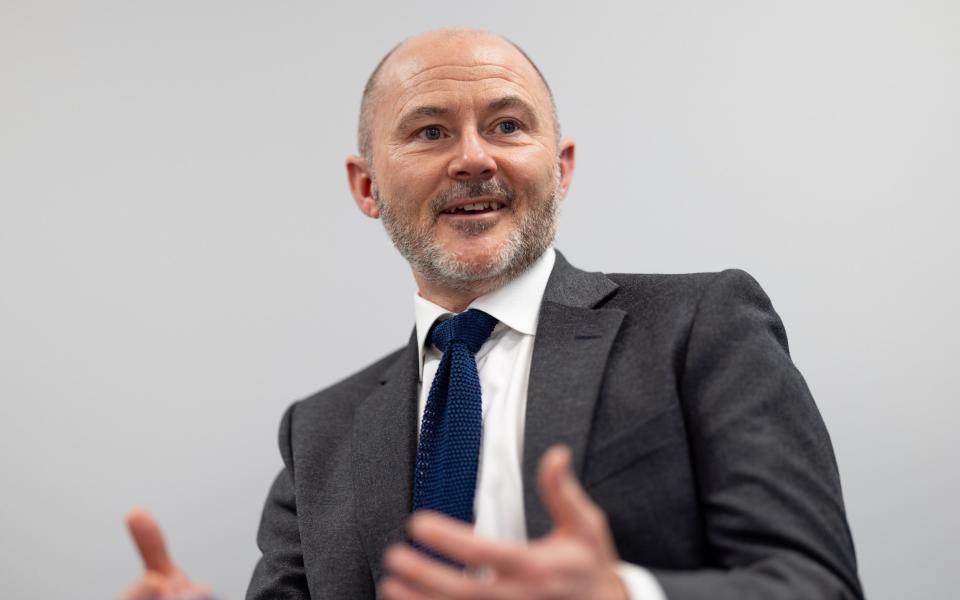
The Conservative Government has hailed the recruitment of 20,000 additional officers as part of an ambitious “uplift” programme started by Boris Johnson in 2019, but police leaders point out that the rapid recruitment caused an imbalance of experience by flooding forces with new officers.
“I want to try and get away from this idea that you can somehow judge the success of policing by the number of constables,” Stephens says. “That’s a headline but that doesn’t tell the story about the skills and abilities that we need to combat criminality in the future. We need coders and computer scientists and all of these things, not just bobbies on the beat.”
He calls the uplift a “replacement programme for what was lost before”, but says it was only for officers rather than the police staff lost during the same period. He estimates that there are 4,000 empty police staff posts across England and Wales and “that’s only set to grow… they’re just sitting empty and there’s not the money to fill them”.
The vacancies include digital forensics experts, data scientists, crime-scene examiners, intelligence analysts and other roles core to investigations. Meanwhile, Stephens says new police constables recruited as part of the government’s uplift programmes “ending up in jobs that they don’t need to do, like answering the phone”.
In his three-year term, his mission is to create more “long-term thinking” about what policing needs and convince the Government to drastically reform its year-by-year funding settlement process in favour of NHS-style long-term workforce planning.
“I see it as part of my role to try and get everybody corralled around ‘Right, what are we trying to achieve for policing here?’. And a recognition that this can’t always be achieved by short-term initiatives and pieces of funding, but a genuine long-term view.”
The grand designs are a long way from how Stephens’ career started in 1993, when he joined the police as a graduate fresh from an engineering and management studies degree at Cambridge University. The prestigious course was sponsored by the General Electric Company (GEC), where Stephens worked every summer, but he soon realised he was more interested in policing because “it was about people and, essentially, engineering was a lot about things”.
The career change, which came as something of a shock to his parents, was inspired by the tales told by a school friend’s father, who had been a detective in their hometown of Hartlepool. “When I graduated, I said to my mum and dad: ‘I’m going to join the police’ and they were like, ‘What?’,” Stephens recalls.
“But I’ve never looked back really. It’s my friend Andy to blame. I suppose subconsciously, although I’d have never known it at the time, it was listening to Andy’s dad’s stories, sitting in his kitchen drinking blue Sodastream.”
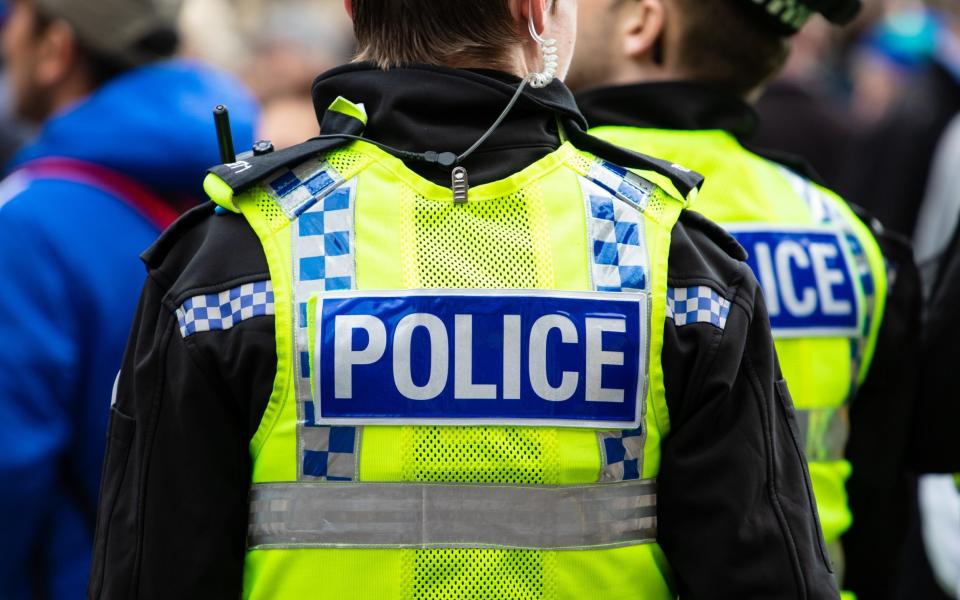
Stephens now prefers the humble cup of tea, which he drinks as we sit in a small glass-fronted room at the NPCC’s new headquarters in Westminster, London. Boxes are still stacked up waiting to be unpacked in his spartan office. Two traditional police hats dangle from a coat stand behind his desk, but Stephens says they belong to his predecessor Martin Hewitt.
He doesn’t seem to mind the lack of creature comforts and positively fizzes with excitement when talking about his job. “I love policing. I absolutely love it,” he grins. “I’m always learning something new, I like to learn new things and I genuinely think that when policing is done well, we can make a massive difference to people’s lives.”
He is very proud of his post, bringing his mum to watch him lay the policing wreath during the Remembrance Sunday service at the Cenotaph in November, which was “pretty special”.
Stephens’ life started out in Hartlepool, County Durham, and despite moving to Surrey in 1996 he has retained his accent and says he is “still proud to be a northerner, I always call that home”.
His mother worked as a clerk on a children’s hospital ward, and there were “always random babies and kids in the house”, as well as Vietnamese refugees that the family supported through a local volunteer group.
His father was originally a builder but took qualifications at night school to become an architectural consultant and ran his own small practice. “As a consequence of that, I was on building sites holding up spirit levels and measuring tapes and all that for my dad,” Stephens says.
As a teenager, one of his part-time jobs was working as a wedding photographer’s assistant, which often involved battling 1980s “meringue-style” bridal dresses so loved ones could fit in the pictures.
He attended the local comprehensive school and sixth-form college, and became one of its first students to get into Cambridge University. “The only reason I applied there was because I bumped into a guy at a careers fair in Middlesbrough who was from one of the Cambridge colleges and started talking to me,” Stephens says.
“It was an absolutely great place to be. You see all that stuff about it being sort of elitist, and I’m sure some of that goes on but that wasn’t my experience at all. I met people from really different backgrounds, and I found it an endlessly fascinating place to be.”
It was while working for GEC in Chelmsford, Essex during the holidays, as one of the conditions of his sponsored degree, that Stephens had his initial “north-south culture shock”. But it was also where he met his future wife Sarah, who went on to become a teacher in Suffolk when he joined Cambridgeshire Constabulary after graduating.
The couple moved to the South East to support Sarah’s family after her father died, and Sarah herself died of ovarian cancer in 2014, when their son was 14 years old.
“She was very young, fit, healthy, she was a really active teacher,” Stephens says. “It’s just one of those things that’s often late diagnosed, which was the case with Sarah. It was too late. She fought hard for three years, but really we all pretty much knew it was too late from day one.”
He says he wouldn’t be doing his current job “if it wasn’t for the support and encouragement” from his late wife, and that families are vital for all police officers to “recharge their compassion”.
“We’re giving care to others, sometimes on the worst day in their life, and if your compassion is completely drained it’s hard to do,” he adds. “I think you get that from your families and I certainly got that from Sarah, and I get it now from my son.”
Stephens joined Surrey Police in 1996 because the woman who answered his call “was friendly to me on the phone when I rang looking for a transfer” and “never looked back”, rising from a constable to serve every single rank until he became its chief in 2019.
The starry lineup of Stephens’ forebears in that post include Sir Mark Rowley, the current Metropolitan Police Commissioner and his predecessor Ian Blair, Dame Lynne Owens, the former National Crime Agency director general, Robert Quick, the ex-counter terrorism chief, and Denis O’Connor, the former HM Chief Inspector of Constabulary.
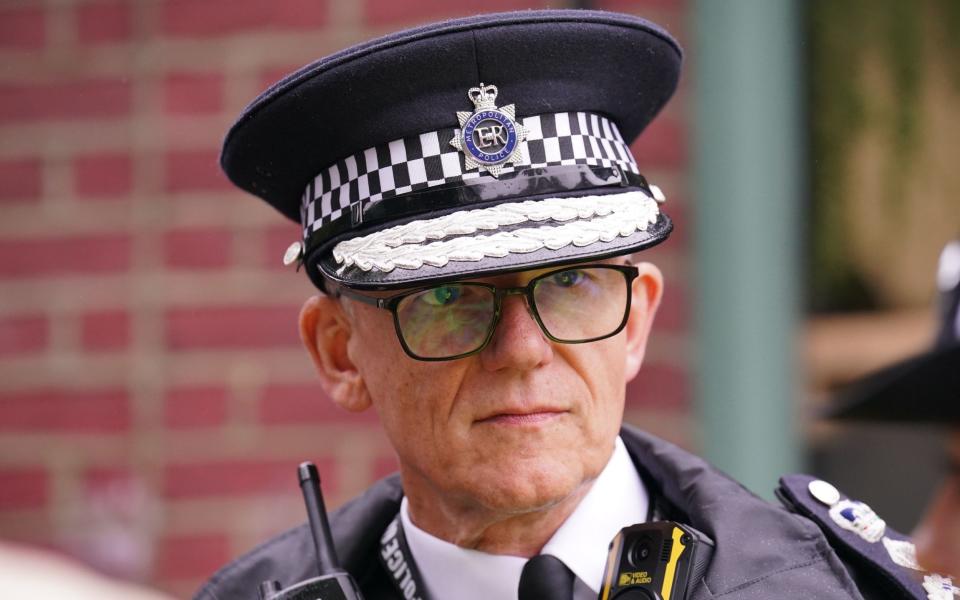
But the person who encouraged Stephens to step up to the national stage was Simon Cole, the long-serving chief constable of Leicestershire Police who took his own life 12 days after retiring in 2022. “Simon was a massive supporter and he was the first person that encouraged me to take on national responsibilities as well as force responsibilities,” he says. “Had it not been for Simon, I wouldn’t have got involved in national work in the first place.”
Stephens became the national lead for neighbourhood policing before going on to chair the NPCC’s finance committee. “That gave me insight into the sort of breadth of everything that goes on in policing,” he says. “Then when Martin Hewitt announced he was going it was encouragement from colleagues saying, ‘Will you consider standing, what do you think?’ that made me decide to stand for election.”
The role as NPCC chair has thrown Stephens into the national spotlight and onto the frontline of fractious discussions with the government. He had a front-row seat for the row between the Met and Suella Braverman over the policing of pro-Palestinian protests, which culminated in Braverman being sacked as home secretary last month.
Stephens is diplomatic about the controversy, which caused allegations from many police officers that politicians were stepping beyond the law and convention to interfere with complex operational decisions during thousands-strong demonstrations.
“In the grand scheme of things, it’s not a bad thing that we’ve had a discussion in public about the important need for operational independence in policing,” he says. “It’s a fundamental principle. I think as soon as you get direct political influence over operational decisions, then that boundary can get blurred.”
Stephens says the laws governing policing mean that each officer is legally responsible for their own decisions to arrest or not arrest, and must make them “literally in seconds”.
“It’s right that politicians, on behalf of communities, give a view about what they think, and for us to take that into account, but that’s different to being involved in actual decision-making,” he adds.
When asked about the volatile relationships between police leaders and recent home secretaries, Stephens says it’s “important not to invest it in one individual”.
“We work with the government of the day, with whoever is in a position of responsibility, and we’ll always try to have a really positive and strong relationship,” he adds. Braverman had not endeared herself to police by accusing forces of being “woke”, and “spending taxpayers’ money that could have been spent fighting crime, on diversity training”.
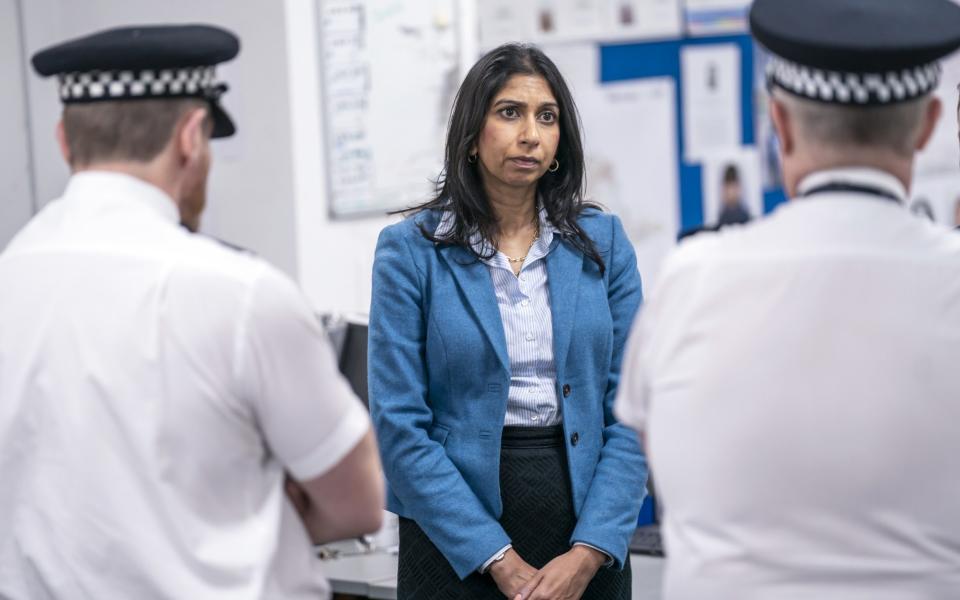
Stephens leads the national Police Race Action Plan, which was drawn up as a result of the Black Lives Matter protests sparked by the murder of George Floyd in the US, and says he listens to views from “right across the spectrum, including polarised views”.
“I think it’s really important that we listen to all of those views in policing, but then make a professional operational assessment about how the way that we police needs to change as a consequence of that,” he says. “For some, we’ll be changing too much and for others, we won’t be changing anywhere near quickly enough.”
Stephens denies charges of “wokeness” and says police are “taking sensible decisions that are in line with what our communities need” – particularly after a wave of horrific crimes committed by police officers that battered public trust. A succession of court cases and misconduct hearings have exposed racism, sexism, homophobia and sparked a drive to root out corrupt officers.
He is now spearheading a new programme to look at policing culture across the UK, saying it needs to be “addressed across the whole of policing and definitely not just in the Met”.
“There are some wonderful aspects of policing culture – the teamwork, the camaraderie, the problem-solving ability, the willingness to throw yourself into things, to try and deal with issues that other agencies wouldn’t go anywhere near,” he says.
“But at the other end of the spectrum, there are some awful parts of policing culture that need to be consigned to history.”

